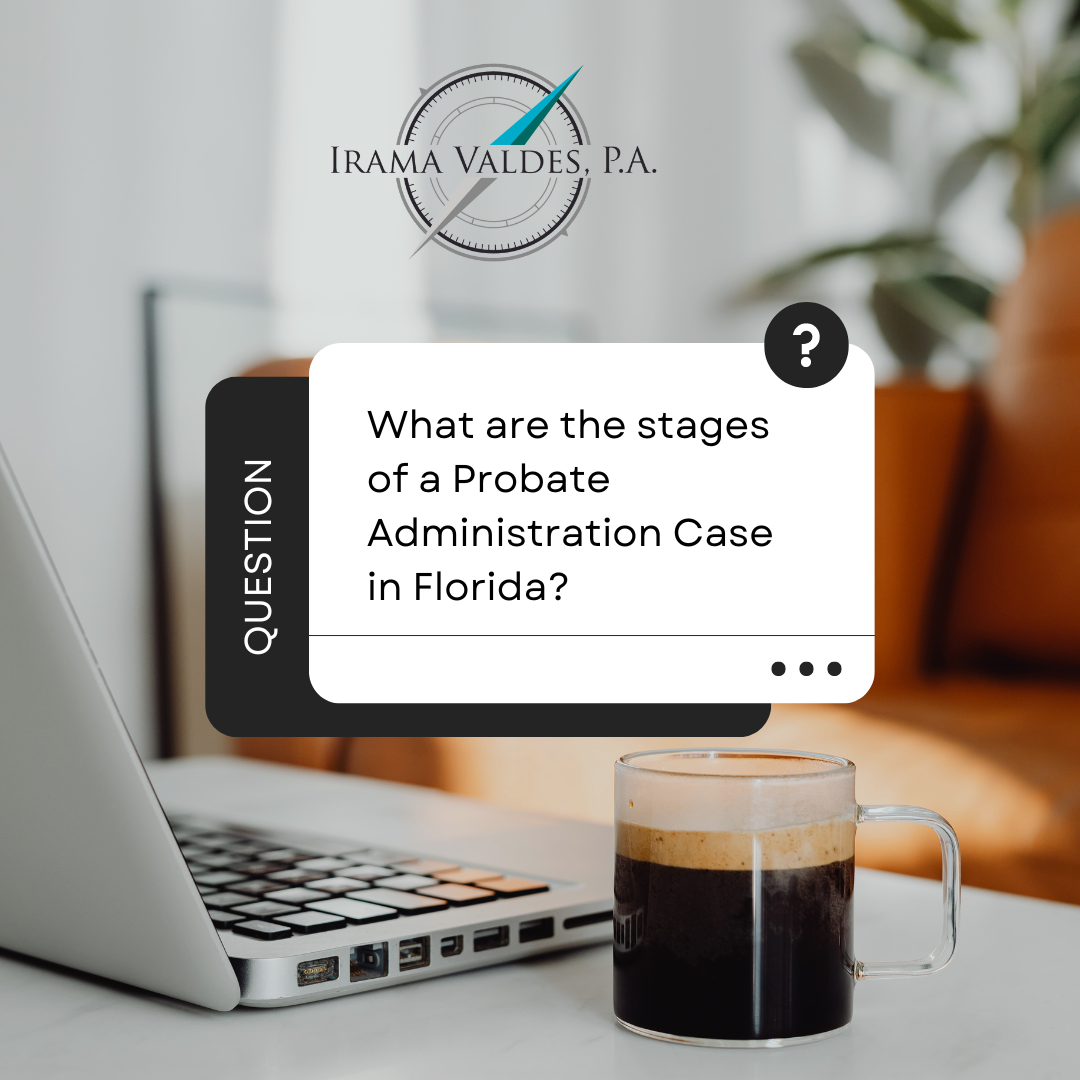In Florida, probate is the legal process through which a deceased person’s assets are distributed to heirs and beneficiaries, and debts are paid off. The process can vary depending on the complexity of the estate, but generally, there are seven general stages:
1. Filing the Petition
– Initiation: The probate process begins by filing a petition with the probate court. The petition typically requests the court to either admit the will to probate (if there is one) and appoint a personal representative (executor) or to determine heirs and appoint an administrator if there is no will.
– Jurisdiction: The petition is filed in the county where the deceased person (decedent) resided at the time of death or where the decedent held assets (though residence is preferred).
2. Appointment of Personal Representative
– Role: The court appoints a personal representative to manage the estate. If there’s a valid will, the person named in the will usually serves in this role. If there’s no will or the named person cannot serve, the court appoints someone else, often a close family member. The Court follows Florida Statute 733.301 in determining the preference in appointment as to who should serve in intestate estates or in testate estates where all the nominated personal representatives have either predeceased the Decedent or do not wish to serve.
Check out the statute HERE!
– Letters of Administration: The personal representative is granted authority through “Letters of Administration,” allowing them to act on behalf of the estate.
3. Notice to Creditors and Heirs
– Notification: The personal representative must notify all known creditors and publish a notice in a local newspaper to inform unknown creditors. This notice allows creditors to make claims against the estate. This is only necessary in cases opened where it has been less than 2 years since the Decedent’s date of death.
– Heirs and Beneficiaries: Heirs and beneficiaries are also notified, usually through direct mail, informing them of the probate process.
4. Inventory and Appraisal of Estate Assets
– Assessment: The personal representative must take inventory of all the decedent’s assets, including real estate, bank accounts, investments, personal property, etc. If there are liquid assets, such as checking accounts, CDs, etc, the accounts are closed and the funds are placed in a Restricted Depository (which is basically a checking account in the name of the Estate that no funds can come out of without a Court Order).
– Valuation: The assets are appraised to determine their fair market value at the time of the decedent’s death.
5. Payment of Debts and Expenses
– Settling Debts: The personal representative pays off any valid creditor claims, estate administration expenses, and taxes from the estate assets.
– Disputes: If there are disputes over the validity of creditor claims or the estate does not have enough assets to pay all claims, the court may be involved in resolving these issues.
6. Distribution of Remaining Assets
– To Heirs and Beneficiaries: After debts and expenses are paid, the remaining assets are distributed according to the will, or if there is no will, according to Florida’s intestacy laws.
– Final Accounting: The personal representative provides a final accounting to the court, detailing all financial transactions made on behalf of the estate.
7. Closing the Estate
– Final Discharge: Once all assets have been distributed and all obligations fulfilled, the personal representative files a petition (and other supportive pleadings) to close the estate. The court reviews the petition, and if everything is in order, it will issue an order closing the estate and discharging the personal representative from their duties.
Types of Probate in Florida:
– Formal Administration: The most common and comprehensive type of probate, involving all the steps listed above.
– Summary Administration: A simplified process available for smaller estates or if the decedent has been dead for more than two years or where assets do not exceed $75K.
– Disposition Without Administration: Available for very small estates where no real property is involved, and the assets are exempt from creditor claims.
Each stage involves specific legal requirements, and having legal counsel is often advisable to navigate the process efficiently. Need help? Let us know! (305) 477-1111 or info@probatelawmiami.com.








